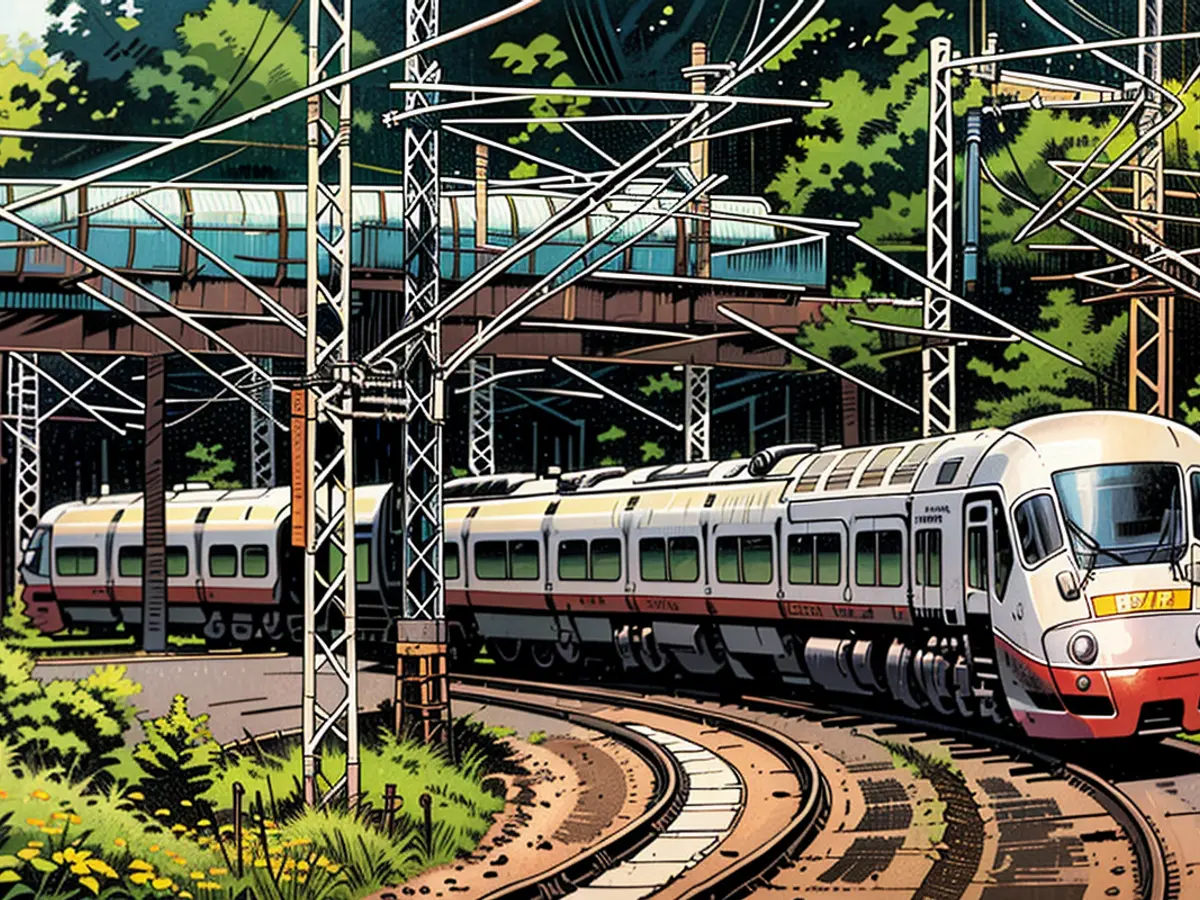Railway authorities increase train ticket prices
Following the budget agreement from the traffic light coalition, German Railways (Bahn) is planning to increase the costs for using its tracks. Specifically, the subsidiary DB Infrago aims to boost the fees by approximately 18% starting from 2026. This equates to around 1.2 billion euros more. The subsidiary DB Fernverkehr, which relies on these tracks, has hinted at higher ticket prices for IC and ICE services if the track prices surpass the inflation rate. This change is set to take effect from 2025. As a result, long-distance ticket prices could surge by around 18%. However, legal challenges persist against this hike.
The rail toll for freight traffic is also predicted to increase significantly, stirring dissatisfaction in the industry. This could result in a favorable shift towards roads and trucks during the climate crisis.
The cause behind these planned increases stems from the budget negotiations of the traffic light coalition. Next year, the Bahn is expected to replace the originally planned billion-euro subsidies with a 4.5 billion euro increase in DB Infrago's equity capital. Remarkably, this increase does not count towards the debt brake, unlike the subsidies. Legally, the equity capital is required to generate interest at a 5.9% rate through income derived from track prices. As the equity capital rises, so do the track prices. An additional challenge is that the rail toll for regional transportation may only increase by up to 3% according to law. Consequently, the burden for freight trains and long-distance trains becomes heavier.
The future of rail tolls in regional transportation is uncertain
The revenue from track prices serves to fund the upkeep of the ageing network. In the planned track price hike for 2026, DB Infrago is adopting an unusual approach: The rail toll for regional transportation is projected to rise by 23.5%, for long-distance transport, it's around 10%, and for freight transport, it's approximately 15%. However, the Federal Network Agency will likely review this hike in light of the legal limit for regional traffic, which caps the increase at 3%.
There's potential for the Bundestag to change the relevant regionalization law, but this move could trigger substantial opposition from the federal states. As they commission transport services from multiple rail providers, they would also have to bear the additional burden.
The Federal Ministry of Transport, under the leadership of Volker Wissing, has yet to comment on this issue. Such substantial increases contradict the government's goal of shifting traffic towards railways. Peter Westenberger, the CEO of "Rail Freight", the association representing Bahn's competitors, has expressed concern: "The agreed-upon track price system from 2016 is on the verge of collapsing. One shock follows another," he stated. Occasionally, it negatively impacts freight and long-distance traffic, while at other times, it mainly affects local traffic. The threat of even more substantial increases looms in the coming years. While the transport minister simply "closely observes" the situation, the German government itself is largely responsible for these increases.
The traffic light coalition's budget agreement has led the traffic lights coalition's traffic lights coalition's The traffic light coalition's budget agreement has triggered significant increases in rail tolls, with DB Infrago aiming to boost fees by 18% for long-distance transport starting from 2026. The unprecedented rise in track prices could potentially drive a shift towards roads and trucks in the industry during the climate crisis.








